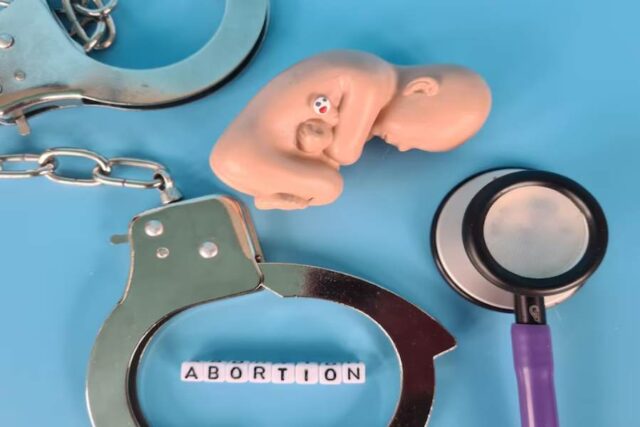What is the abortion law in South Carolina? That question has gained renewed urgency in recent years as states across the U.S. have reshaped reproductive rights. South Carolina is among the states with one of the most restrictive abortion laws in the country. Navigating the legal landscape requires understanding gestational limits, medical exceptions, and the political debates shaping ongoing changes. Whether you’re a South Carolina resident, a healthcare provider, or simply someone trying to stay informed, knowing the law is crucial.
This article explores what is the abortion law in South Carolina in detail—highlighting when abortion is legal, the exceptions allowed, the penalties involved, and how the law compares nationally. We’ll also explore related issues like access, support services, and recent court battles impacting reproductive healthcare in the state.
What is the abortion law in South Carolina?
South Carolina currently bans most abortions after around 6 weeks of pregnancy, often before many know they’re pregnant. Exceptions exist for rape, incest, fatal fetal anomaly, and life endangerment.
Current Abortion Law in South Carolina Explained
South Carolina currently enforces a 6-week abortion ban, positioning the state among those with the most restrictive abortion laws in the U.S. This legislation prohibits most abortions once a “fetal heartbeat” is detected—typically around six weeks of pregnancy, a point at which many people may not even realize they are expecting. Officially called the Fetal Heartbeat and Protection from Abortion Act, the law was originally passed in 2021 but faced multiple legal challenges. Governor Henry McMaster signed a revised version into effect in May 2023 following the U.S. Supreme Court’s decision to overturn Roe v. Wade.
The bill was championed by Republican lawmakers and is part of a broader national effort to limit abortion access. Under the law, providers must perform an ultrasound to check for fetal cardiac activity before proceeding with an abortion. If a heartbeat is detected, the procedure is banned except in limited, legally defined circumstances.
The law introduces added barriers for both patients and healthcare professionals, including documentation requirements and legal scrutiny. It also affects the type of information available online, often influencing how individuals search for help—sometimes even under seemingly unrelated terms like “stylish name” generators when seeking anonymity. This strict legislation continues to shape reproductive rights debates across South Carolina.
When Are Abortions Legal in South Carolina?
South Carolina’s abortion laws are among the strictest in the country, with minimal windows of legality and stringent requirements for medical professionals. Exceptions exist but are narrowly defined and require comprehensive documentation.
Legal Window Up to Six Weeks
Abortion is permitted in South Carolina only up to six weeks of pregnancy, based on the detection of embryonic cardiac activity. This is often referred to as the “fetal heartbeat” standard, though medically it represents early electrical impulses, not a developed heart. Since many individuals do not realize they are pregnant within this timeframe, access is severely restricted. Physicians must perform an ultrasound, and if cardiac activity is detected, the procedure is typically prohibited unless specific exceptions apply.
Circumstances Involving Rape or Incest
An exception is allowed for pregnancies resulting from rape or incest, but strict conditions must be met. The abortion must occur within twelve weeks, and the physician must report the incident to law enforcement within twenty-four hours. Additionally, the patient must sign a sworn statement affirming the circumstances. These layers of legal and procedural barriers often delay or deter access.
Fatal Fetal Anomalies
Abortion is also permitted when a fatal fetal anomaly is diagnosed, meaning the fetus would not survive outside the womb. Two physicians must confirm the diagnosis in writing. This exception is tightly regulated and requires multiple steps before the procedure can proceed.
Risk to Maternal Life or Health
The law provides an exception if the pregnancy poses a serious risk to the woman’s life or could cause significant, irreversible harm to a primary bodily function. In such cases, the decision must be justified by the attending physician and documented accordingly to meet legal standards.
Required Medical Documentation
Healthcare providers must compile and retain detailed records for every abortion performed under South Carolina law. This includes ultrasound images, diagnostic findings, medical justifications, and affidavits or incident reports when applicable. Each exception must be documented meticulously to ensure compliance with legal obligations, further complicating access to care.
Why Did South Carolina Change Its Abortion Law?
South Carolina’s decision to change its abortion law was driven by a combination of political, judicial, and advocacy-related developments that followed the landmark U.S. Supreme Court ruling in Dobbs v. Jackson Women’s Health Organization, which overturned Roe v. Wade. This reversal allowed individual states to regulate abortion without federal oversight, prompting swift action from conservative lawmakers in South Carolina.
- The South Carolina General Assembly, which had long favored more restrictive abortion policies, quickly moved to implement a law banning most abortions after the detection of fetal cardiac activity, typically around six weeks of pregnancy.
- Initially passed in 2021, the law was struck down by the state Supreme Court in January 2023 for violating privacy rights under the state constitution. However, that ruling came from a court with a female justice who later retired.
- After her departure, the court became an all-male panel. In a significant shift, it upheld a similar six-week ban in August 2023, illustrating the influence of judicial composition on reproductive rights decisions.
- Throughout this period, national and local advocacy groups played significant roles. Organizations like WREN and the ACLU of South Carolina actively challenged the law and raised public awareness, while anti-abortion groups lobbied heavily in favor of stricter measures.
How the Law Affects Abortion Clinics and Access
South Carolina’s stringent abortion laws have significantly curtailed access to reproductive healthcare. The state enforces a six-week abortion ban, often before many individuals realize they’re pregnant, with limited exceptions. As of 2024, only a few abortion providers remain operational, compelling many patients to travel considerable distances—sometimes over 100 miles—to obtain care. The financial burden is substantial, with procedures costing between $400 and $1,000, excluding additional expenses like travel and lodging. While organizations like the Carolina Abortion Fund offer assistance, many still face economic hardships. State law mandates a 24-hour waiting period after counseling, necessitating multiple clinic visits. These barriers disproportionately affect low-income individuals and people of color, exacerbating existing health disparities. Moreover, restrictive laws have led to instances where women are forced to carry nonviable pregnancies, highlighting the profound personal and societal impacts of limited abortion access .
What Are Your Legal Rights and Options?
Navigating abortion access in South Carolina requires understanding the legal protections, restrictions, and alternative choices available to patients. Whether you are seeking care in-state or considering options beyond its borders, knowing your rights is essential to making informed decisions.
- Access to Emergency Care: Under federal law, hospitals are required to provide emergency medical treatment, including abortion, if the pregnant person’s life is at risk. This protection falls under the Emergency Medical Treatment and Labor Act (EMTALA), ensuring patients can receive life-saving care regardless of state restrictions.
- Minors and Parental Consent: South Carolina law requires individuals under 17 to obtain consent from at least one parent or legal guardian before receiving an abortion. In special circumstances, a judicial bypass may be pursued, allowing minors to petition a court for permission instead.
- Traveling Out of State for Abortion: Patients have the legal right to travel to another state where abortion laws may be less restrictive. Clinics in nearby states like North Carolina or Virginia may offer later-term services not available in South Carolina.
- Medical vs. Surgical Options: Depending on gestational age and provider availability, patients may choose between medication abortion (typically up to 10 weeks) and surgical procedures. Each option has legal, logistical, and medical implications.
- Confidentiality and Privacy Laws: Abortion providers must follow HIPAA and state privacy laws, ensuring that a patient’s medical decisions remain confidential, even for minors in most cases.
In Summery
South Carolina’s abortion law places significant restrictions on access, including a six-week gestational limit and mandatory waiting periods. With only a few clinics operating and specific requirements like parental consent for minors, understanding the law is crucial for anyone seeking care. South Carolinians should also be aware of their right to travel out of state for abortion services and the legal distinction between medical and surgical options. Privacy protections remain in place, offering some assurance in a heavily regulated environment. As court decisions and legislative efforts continue to shape reproductive rights in the state, staying informed is not just helpful—it’s necessary. Being educated about the current law ensures better decision-making and preparedness in a changing legal climate.
FAQ’s
Is abortion completely illegal in South Carolina?
No, but it’s banned after about six weeks of pregnancy, with exceptions for rape, incest, fetal anomalies, or medical emergencies.
Can minors get an abortion without parental permission?
Minors under 17 need parental consent but may seek a court-approved judicial bypass in exceptional circumstances.
Are abortion pills still available in South Carolina?
Yes, abortion pills are available but only up to six weeks of pregnancy, in compliance with state law restrictions.
What if I need an abortion after 6 weeks?
After six weeks, abortion is only allowed under limited exceptions. Many seek care in other states with fewer restrictions.
Is there a waiting period for abortion in South Carolina?
Yes, patients must wait at least 24 hours after state-mandated counseling before receiving an abortion procedure.
Can I travel out of state for an abortion?
Yes, it’s legal to travel to another state where abortion access is broader, and many South Carolinians do so for care.














